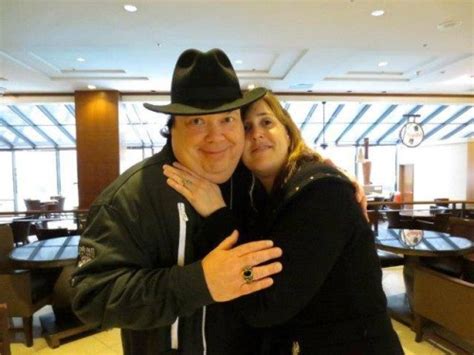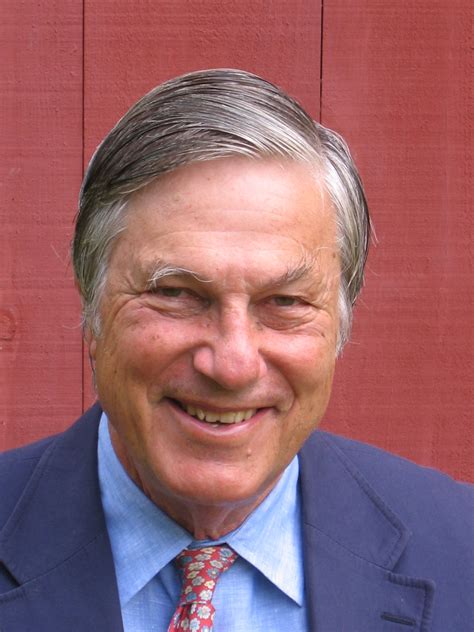A Quote by Donald Michael Kraig
One of the most difficult problems of our age is that leaders, and perhaps academics as well, cannot readily admit that things are out of control and that we do not know what to do. We have too much information, limited cognitive abilities to think in systemic terms and an unwillingness to appear to be in control and to have solutions for our problems. We are afraid that if we admit to our confusion, we will make our followers and students anxious and disillusioned. We know we must learn how to learn, but we are afraid to admit it.
Quote Topics
Academics
Admit
Afraid
Age
Anxious
Appear
Cannot
Cognitive
Confusion
Control
Difficult
Difficult Problems
Disillusioned
Followers
How
Information
Know
Leaders
Learn
Limited
Make
Most
Much
Must
Our
Out
Perhaps
Problems
Readily
Solutions
Students
Systemic
Terms
Things
Think
Too
Too Much
Too Much Information
Well
Will
Related Quotes
We cannot choose how many years we will live, but we can choose how much life those years will have. We cannot control the beauty of our face, but we can control the expression on it. We cannot control life's difficult moments but we can choose to make life less difficult. We cannot control the negative atmosphere of the world, but we can control the atmosphere of our minds. Too often we try to choose and control things we cannot. Too seldom we choose to control what we can ... our attitude.
Later, I would realize that the position of most black students in predominantly white colleges was already too tenuous, our identities too scrambled, to admit to ourselves that our black pride remained incomplete. And to admit our doubt and confusion to whites, to open up our psyches to general examination by those who had caused so much of the damage in the first place, seemed ludicrous, itself an expression of self-hatred - for there seemed no reason to expect that whites would look at our private struggles as a mirror into their own souls, rather than yet more evidence of black pathology.
Holding onto and manipulating physical objects is one of the things we learn earliest and do the most. It should not be surprising that object control is the basis of one of the five most fundamental metaphors for our inner life. To control objects, we must learn to control our bodies. We learn both forms of control together. Self-control and object control are inseparable experiences from earliest childhood. It is no surprise that we should have as a metaphor-a primary metaphor-Self Control is Object Control.
I am not agnostic. I am atheist. I don’t think there is no God; I know there’s no God. I know there’s no God the same way I know many other laws in our universe. I know there’s no God and I know most of the world knows that as well. They just won’t admit it because there’s another thing they know. They know they’re going to die and it freaks them out. So most people don’t have the courage to admit there’s no God and they know it. They feel it. They try to suppress it. And if you bring it up they get angry because it freaks them out.
Most very successful people can remember that their success was discovered and built out of adversity of some kind. It's not the problems that beset us-problems are surprisingly pretty much the same for millions of others-it's how we react to problems that determines not only our degree of growth and maturity but our future success-and, perhaps, much of our health.
We are shut up in school and college recitation rooms for ten to fifteen years, and come out at last with a bellyful of words and do not know a thing. We cannot use our hands, or our legs, or our eyes, or our arms. We do not know an edible root in the woods. We cannot tell our course by the stars, nor the hour of day by the sun. It is well if we can swim and skate. We are afraid of a horse or a cow, of a dog, of a cat, of a spider. Far better was the Roman rule to teach a boy nothing that he could not learn standing.
Perhaps in the back of our minds we already understand, without all the science I've discussed, that something terribly wrong is happening. Our sustenance now comes from misery. We know that if someone offers to show us a film on how our meat is produced, it will be a horror film. We perhaps know more than we care to admit, keeping it down in the dark places of our memory-- disavowed. When we eat factory-farmed meat we live, literally, on tortured flesh. Increasingly, that tortured flesh is becoming our own.
When a path opens up before us that leads we know not where, don't be afraid to follow it. Our lives are meant to be mysterious journeys, unfolding one step at a time. Often we follow a path worn smooth by the many and in doing so we lose our authenticity, our individuality, our own unique expression. Do not be afraid to lose your way. Out of chaos, clarity will eventually rise. Out of not knowing, something new and unknown will ultimately come. Do not order things too swiftly. Wait and the miracle will appear.
...We leave our homeland, our property and our friends. We give up the familiar ground that supports our ego, admit the helplessness of ego to control its world and secure itself. We give up our clingings to superiority and self-preservation...It means giving up searching for a home, becoming a refugee, a lonely person who must depend on himself...Fundamentally, no one can help us. If we seek to relieve our loneliness, we will be distracted from the path. Instead, we must make a relationship with loneliness until it becomes aloneness.
Aging happy and well, instead of sad and sick, is at least under some personal control. We have considerable control over our weight, our exercise, our education, and our abuse of cigarettes and alcohol. With hard work and/or therapy, our relationships with our spouses and our coping styles can be changed for the better. A successful old age may lie not so much in our stars and genes as in ourselves.
It is in the whole process of meeting and solving problems that life has meaning. Problems are the cutting edge that distinguishes between success and failure. Problems call forth our courage and our wisdom; indeed, they create our courage and our wisdom. It is only because of problems that we grow mentally and spiritually. It is through the pain of confronting and resolving problems that we learn.



































